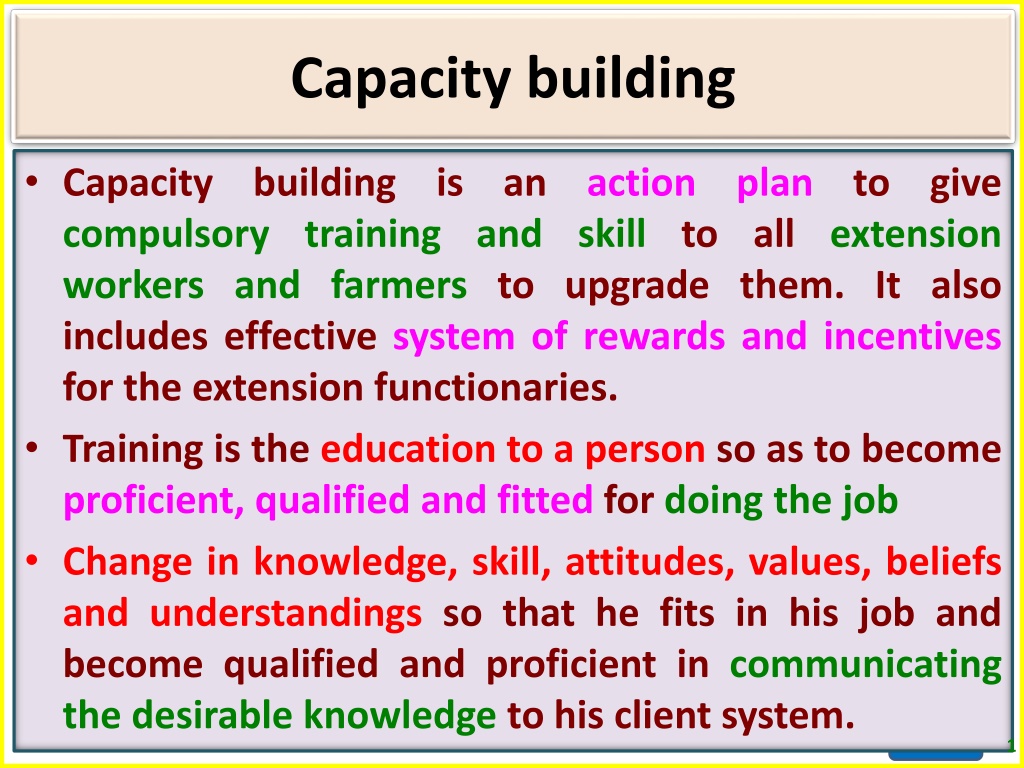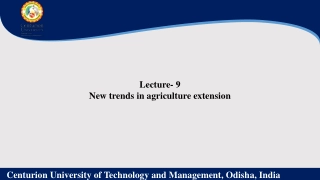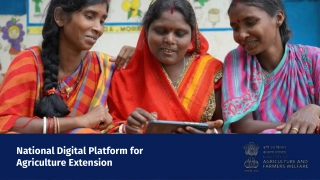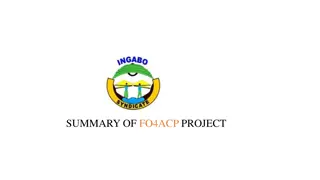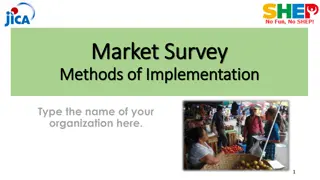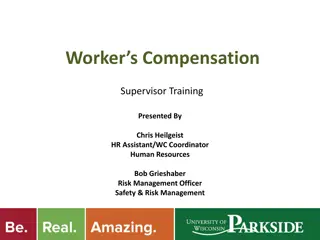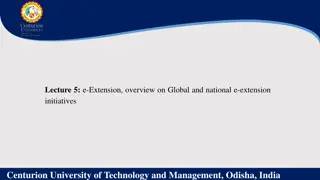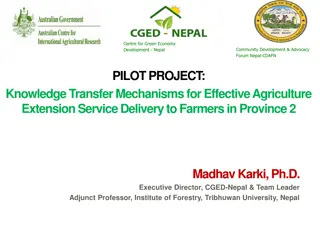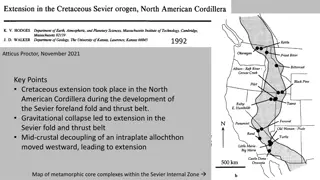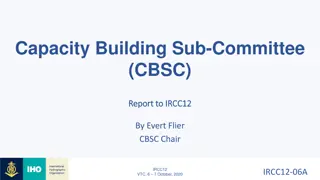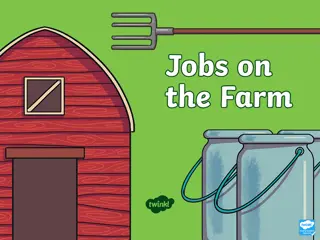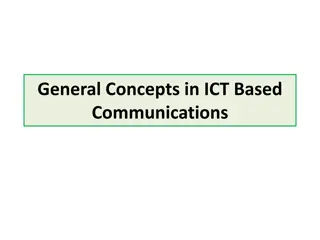Capacity Building and Training for Extension Workers and Farmers
Capacity building involves compulsory training and skills development for extension workers and farmers, along with effective reward systems. Training is essential for individuals to acquire new skills and knowledge, fitting them for their roles. The process includes developing competencies required for specific occupations and bridging the gap between employee competence and organizational requirements. Education differs from training in terms of information acquisition and practical instruction. The needs for training include technology proficiency, skills development for trainers, inspiring rural communities, and improving job proficiency. The training process consists of pre-training, training itself, and post-training phases involving various steps such as needs assessment, program planning, resource allocation, and logistics arrangement.
Uploaded on Sep 23, 2024 | 0 Views
Download Presentation

Please find below an Image/Link to download the presentation.
The content on the website is provided AS IS for your information and personal use only. It may not be sold, licensed, or shared on other websites without obtaining consent from the author. Download presentation by click this link. If you encounter any issues during the download, it is possible that the publisher has removed the file from their server.
E N D
Presentation Transcript
Capacity building Capacity compulsory training and skill to all extension workers and farmers to upgrade them. It also includes effective system of rewards and incentives for the extension functionaries. Training is the education to a person so as to become proficient, qualified and fitted for doing the job Change in knowledge, skill, attitudes, values, beliefs and understandings so that he fits in his job and become qualified and proficient in communicating the desirable knowledge to his client system. building is an action plan to give Content 1
Training Process of acquisition of new skills, attitudes and knowledge in the context of preparing for entry into a vocation or improving ones productivity in an organisation / enterprise Development of knowledge and skill required for employee in particular occupation. It is filling gap between competence of employee and what the organisation requires Employee s competence organisational requirement G p a Organisation facilitates > modified behaviour contributes for achievement of organisational goals Content 2
Differences between Education & Training Education Training Acquisition of general information from institutions Intellectual Development Transfer of specific instruction impacted with vocational purpose Individuals growth and development Development of competencies and capabilities To build the career To build the job performance syllabus & curriculum : Fixed Flexible High of Homogeneity High of Heterogeneity Imparted through mostly lectures Various types of instructional methods Less practical exposures More of practical exposure Long term learning process Short term learning process Content 3
Needs for training To make oneself fit with a technology To develop in skills of trainers and the use of the technologies efficiently To inspire rural people to do things by themselves To develop proficiency in doing job correctly as well as effectively. Content 4
Training Process / Steps in Training Consists of three phases Pre training Training Post training Content 5
Pre-Training Training need assessment Planning for training programme Deciding course Content & Methods Arranging logistics Boarding, Lodging, transport Listing, Contacting & Finalising Resource Persons Trainees background, Expected content, Resources available, date/time, duration Preparation of AV Aids Intimating participants Venue, Date/time/duration, logistics, requirements, covered/uncovered Arranging materials for demonstrations / Field Visits Content 6
Training Phase Reception and Registering Farmers Providing lodging and Boarding Conduct of pre-knowledge test GD session Training programme Schedule Conduct of Ice-Breaking Session Organising lectures / demonstrations with AV aids Organising games Undertaking field trips Conduct of post test Collection of Feedback Concluding Session Action Plan Issue of certificates Feedback on learning & logistics Valedictory Sessions Content 7
Post Training Phase Assessing impact of training programme Follow up trainees Link with appropriate sources, resources Make success stories Publicise the impact for scaling up Content 8
Training to Extension Personnel Two Types Pre-service & In-service Pre-service In-service Orientation Induction / Portal / Vestibule Retraining Career Development / Professional Qualification Content 9
Preservice Training Process of making individuals ready to enter professional job Prior to Appointment Programme of training activities that prepares an individual for a career in extension, and usually leads to some type of diploma, certificate, degree, or other qualification Development Departments University > Graduates Content 10
In-Service Training For in-service candidates who are on the job Process of staff development Improving performance Position & Responsibilities Promotes professional growth Problem centered, learner centered and time bound series of activities, which provides the opportunity to develop a sense of purpose, broaden perception of the participants and increase their capacity to gain knowledge and mastery of techniques. Content 11
Objectives of in-service trainings To keep up with research by regular meetings between researchers and extension workers To impart basic knowledge in agriculture and related subjects To improve extension methods Evaluation of methods Study the research findings Exchange experiences Content 12
1. Orientation Training Newly appointed extension personnel Introduction to employment & provides answer of entrant Training extension personnel to take up new responsibilities New operational programmes Eg. PPP, Millet Mission To meet requirements of New Situation Eg. Flooded / forest Fire / Severe Drought Election Duty Content 13
Induction / portal / vestibule Training Given immediately after selection but before assigning work Eg. FOCARS / IAS Content 14
Maintenance / Refresher Training For trainers of training institutes Refresh knowledge and skills Updating professional competence in specialised area Later Career of individual Learning New methods and Review of old methods To keep employees at peek performance level Content 15
Retraining Prepare individuals for new assignment Eg. Innovation / Marketing Preparing for broadened aspects of old speciality Content 16
Career Development Training To upgrade knowledge, skill & ability of employees to assume greater responsibility Acquisition of higher degrees/ diploma Ph.D., PDF, MBA, HRM, PGD Move up in higher levels of administration Covers logistics, Fees/ stipends Limits to 45 years Content 17
Principles of Farmers Training Need based Rely on abilities and determination Interest and Participation Seek further information Flexibility Social, cultural, economic and institutional Content 18
